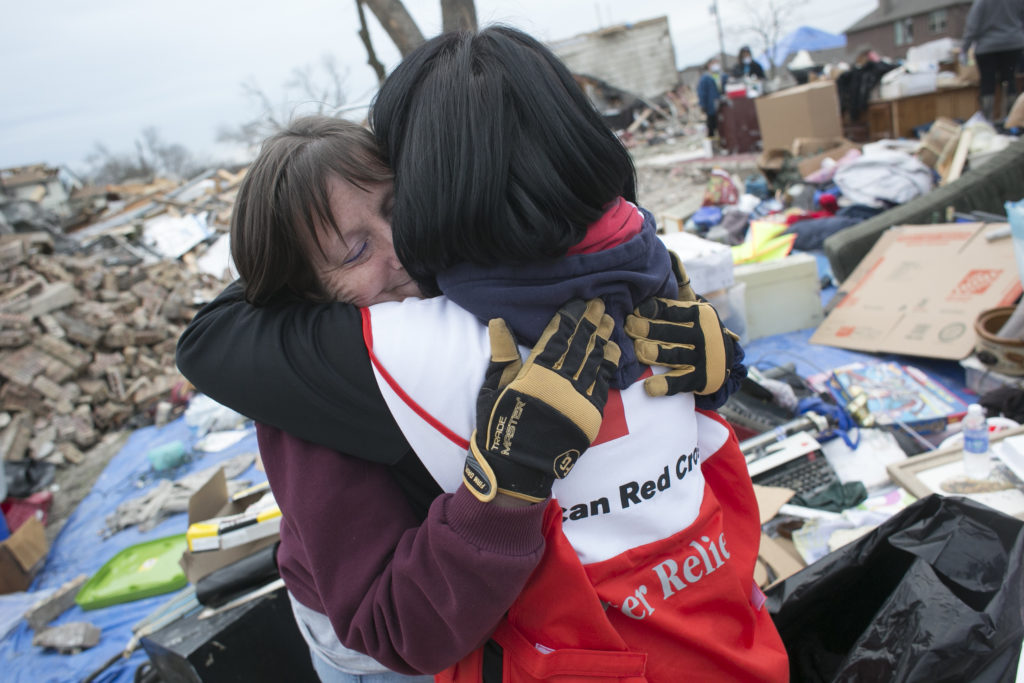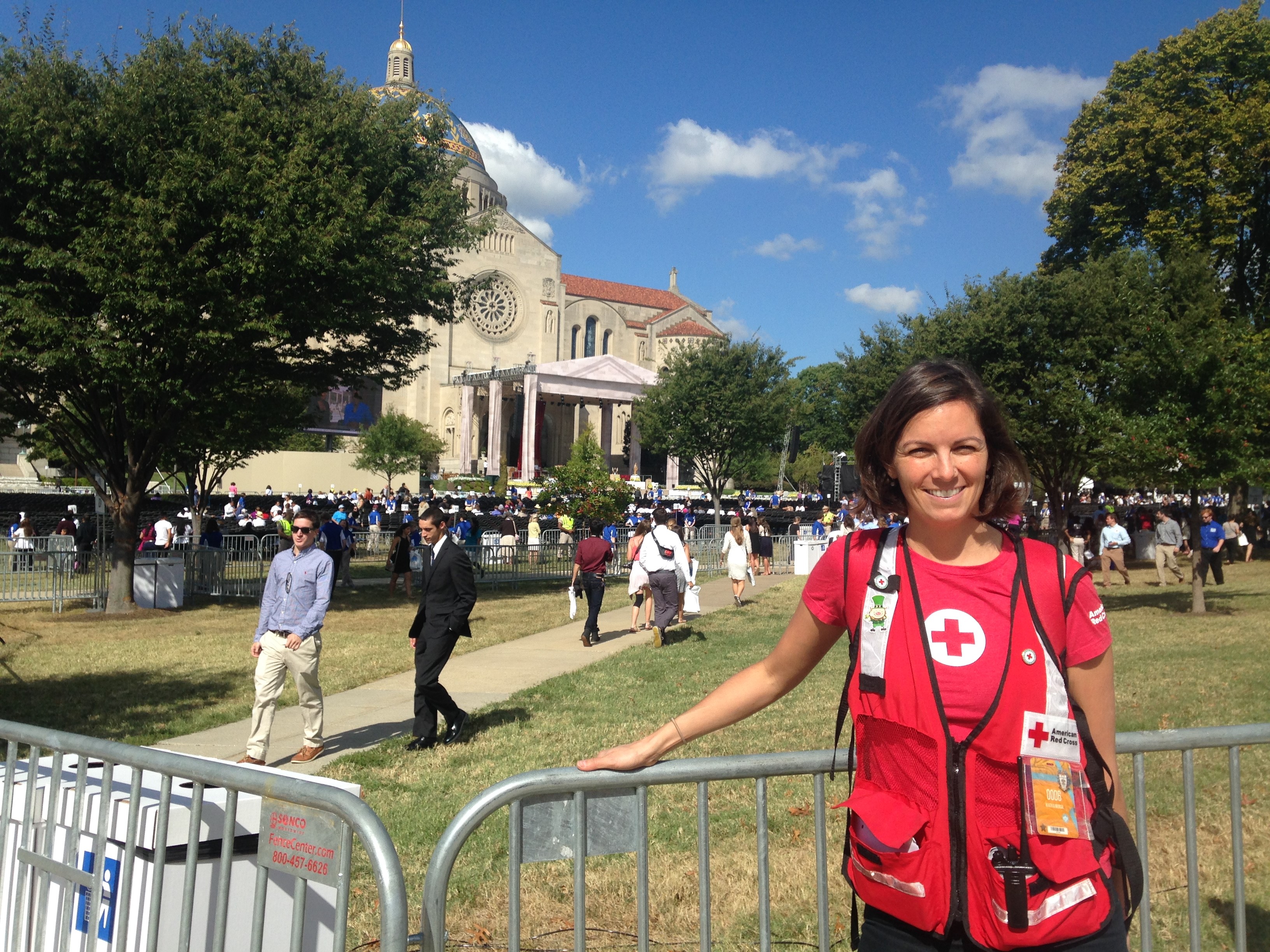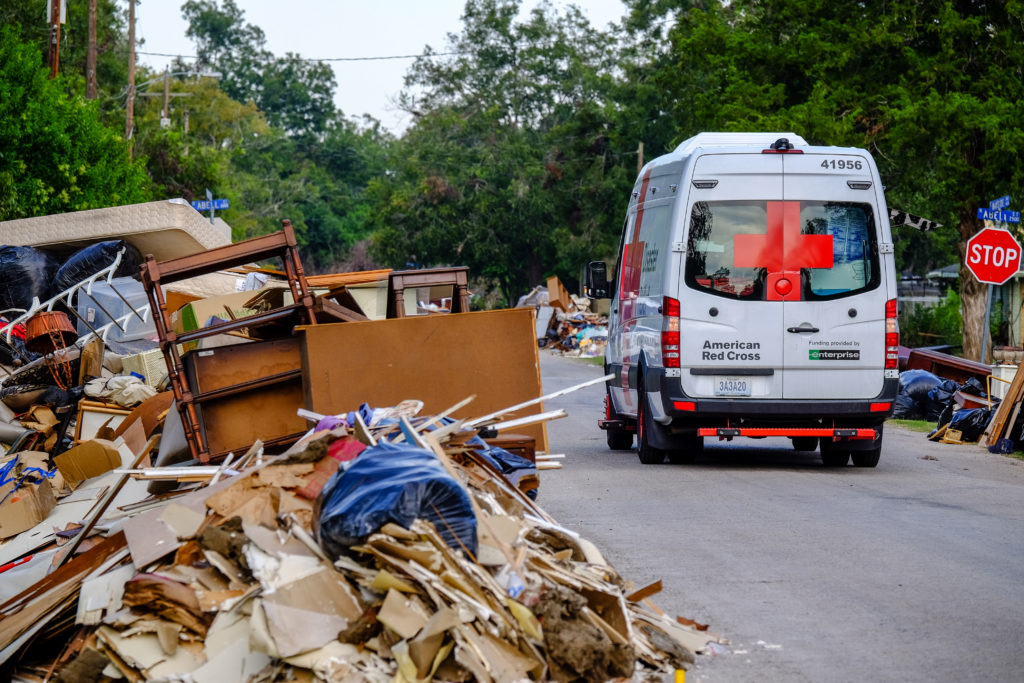Disasters can cause significant stress to people of all ages. That’s why we provide emotional support to those affected by disasters big and small. We believe that everyone is entitled to their feelings and deserves support throughout the recovery process. And we work around the clock to help communities in their time of need.
This World Mental Health Day, we spoke with Christie Rodgers, a Licensed Clinical Social Worker and the Senior Associate for Disaster Mental Health at Red Cross National Headquarters, to raise awareness around mental health issues and the potential psychological impacts of a disaster.
What is your role here at the American Red Cross?
I manage the Disaster Mental Health program for the organization. That includes program development components such as training materials and procedure and job tool documents.
What inspired you to work in the mental health field?
I’ve always been interested in psychology and how our brains work, even as a child. In addition to that, my older brother was diagnosed with a serious mental illness when he was in his early 20s. His experience and those of my family significantly influenced my desire to study mental health and pursue a career in the field.
Why is World Mental Health Day important?
World Mental Health Day highlights the prevalence and wide-spread impact of mental health conditions on people all over the world. According to the advocacy group Mental Health America, one in five adults in the U.S. have a mental health condition. That translates to over 40 million people in the U.S. alone. At a time when rates of severe depression and other mental health conditions are worsening, especially among youth in the U.S., it is important for all of us to educate ourselves on what to look for and how we can help.
How does the Red Cross help families and individuals who are experiencing grief and trauma after a disaster?
The Red Cross Disaster Mental Health team is a 100% volunteer workforce made up of approximately 2,500 licensed and recently-retired mental health professionals from across the country. These volunteers respond to disasters of all sizes, from local home fires to hurricanes and everything in between. Using their professional knowledge and skills, Disaster Mental Health responders provide approved disaster mental health interventions that focus on basic care, support and comfort for those experiencing disaster-related stress. Some disaster survivors may simply need a compassionate ear to listen to their story while others may be experiencing significant stress and need more acute mental health care. The Disaster Mental Health team provides immediate and short-term mental health support and relies on referrals to local mental health providers for individuals and families that need longer-term mental health treatment.
What are some of the psychological impacts of a disaster?
Psychological impacts of disaster vary widely and are dependent on individual factors, such as age, culture, previous functioning, etc. Most reactions to disasters are common and expected. Some examples include feelings of anger, guilt, sadness or anxiety; difficulty concentrating and making decisions; headaches, difficulty sleeping, changes in appetite; crying spells, angry outbursts, questioning spiritual beliefs or having an increased sense of life purpose.
Although some people require more significant emotional support during and after a disaster, many people are resilient and recover on their own. Disaster Mental Health interventions can help with recovery and reduce long-term psychological challenges like depression, post-traumatic stress disorder and anxiety.
What are some of the signs that someone may be struggling from a mental illness?
Signs of a mental health condition include changes in mood, behavior, and in how someone relates to family, friends, co-workers and increased difficulty at work, school or in other areas of life. If you have observed changes like these in yourself or someone you know, please don’t ignore them as they may only get worse and lead to more severe conditions and treatment needs.
What advice would you give to someone who is struggling with their mental health?
First, you are not alone and you do not need to feel ashamed or embarrassed of what you are experiencing. Our mental health needs attention just like our physical health and giving our mental and physical health that attention is a sign of strength and resilience. If you are concerned about your mental health, do not wait to get help. You can explore treatment options at http://www.mentalhealthamerica.net/finding-help. Even if you do not have insurance coverage for mental health treatment, many communities have free or affordable treatment options available. You can also locate treatment options by zip code at http://findtreatment.samhsa.gov.
How can people help normalize discussions around mental health?
The best way to normalize mental health challenges is to be open about your own experiences and how you take care of your mental health. This makes it okay for others to discuss their experiences and to feel supported, rather than judged, in their journey. Chances are good that whoever you are talking with will have had their own mental health challenges or have supported a family member or friend through a challenging time. Also, you do not need to have a mental health condition to relate to or support someone else who is struggling.
We are all human, and we all deserve respect and support from our fellow humans as we go through the various ups and downs of life.
Become a Disaster Mental Health Volunteer
Interested in becoming a disaster mental health volunteer? You can view the eligibility requirements here. Contact your local Red Cross chapter to apply.



